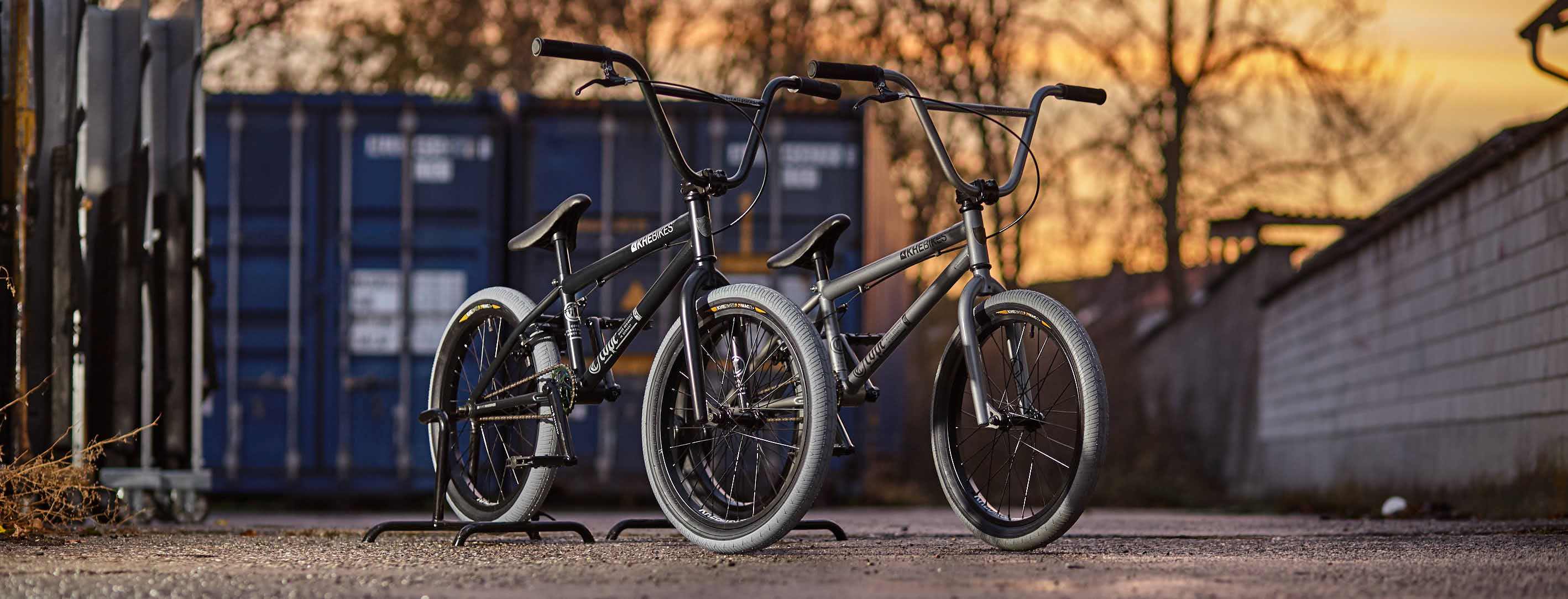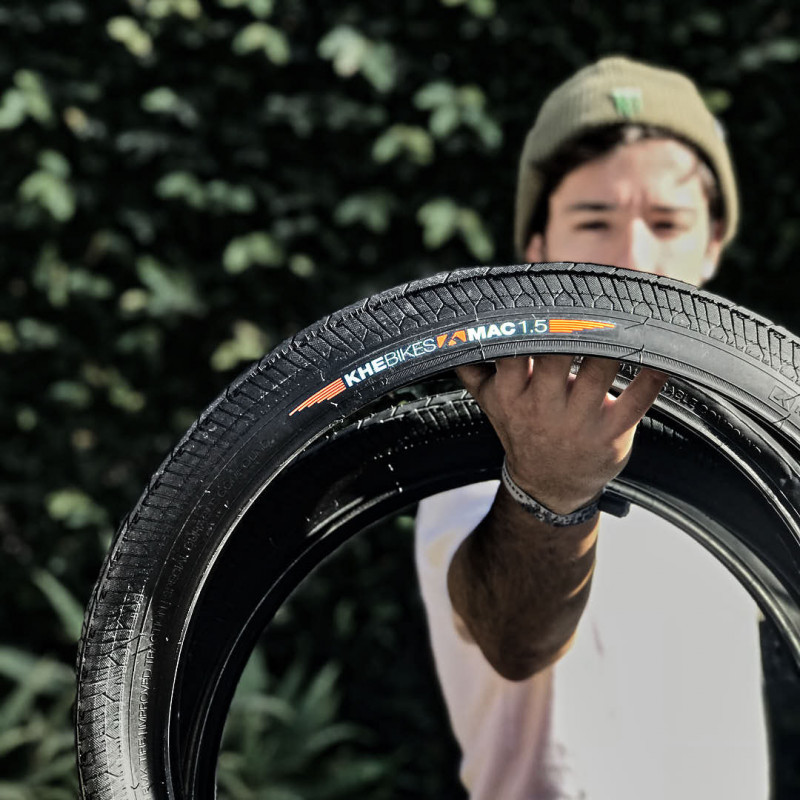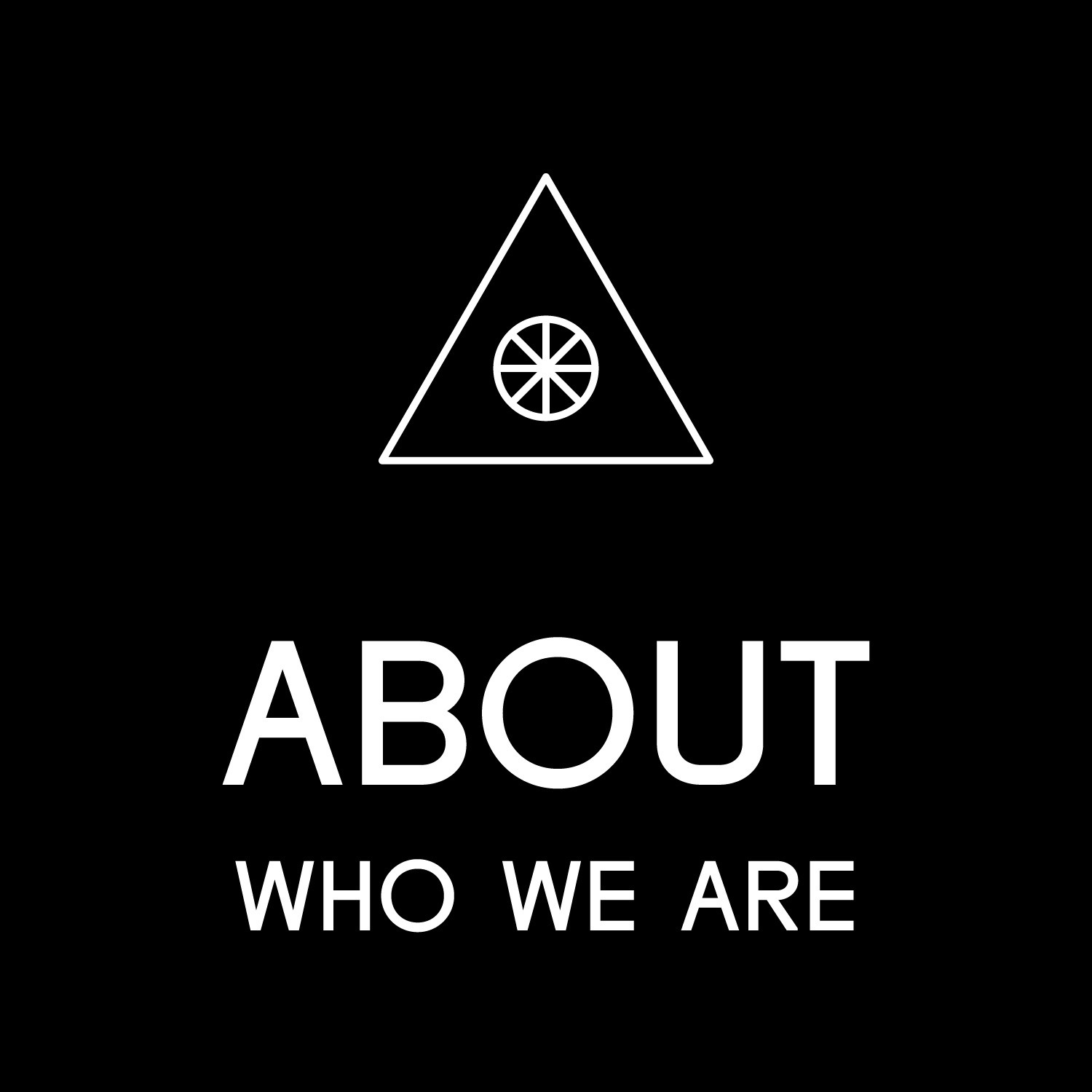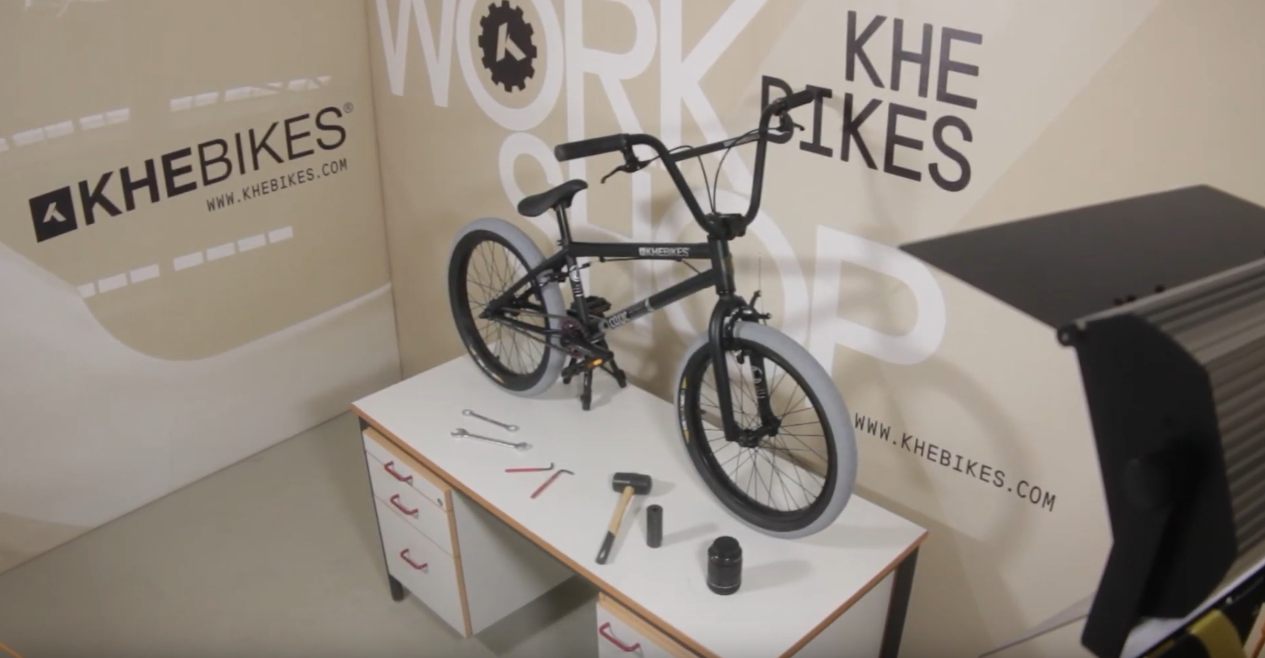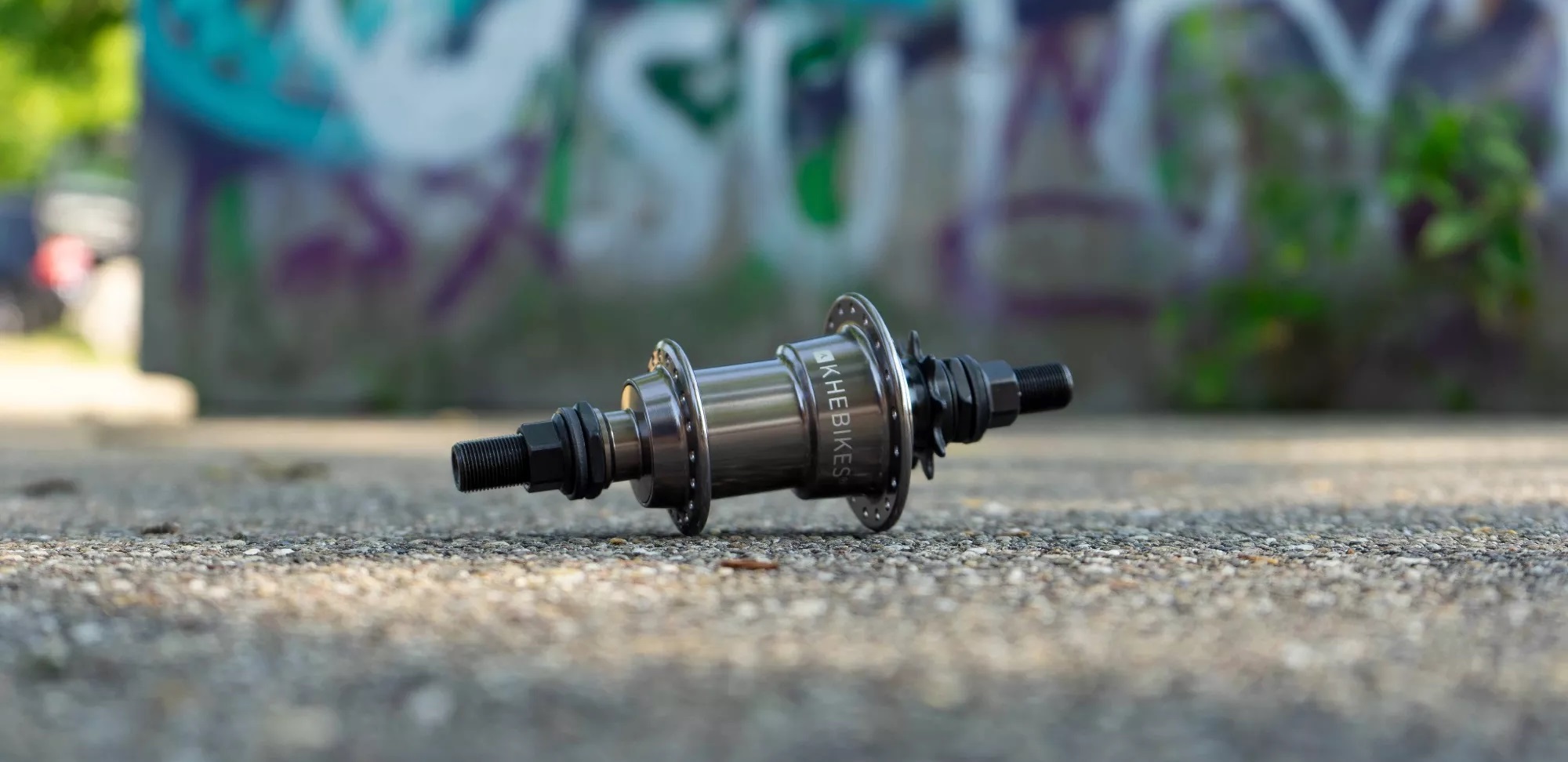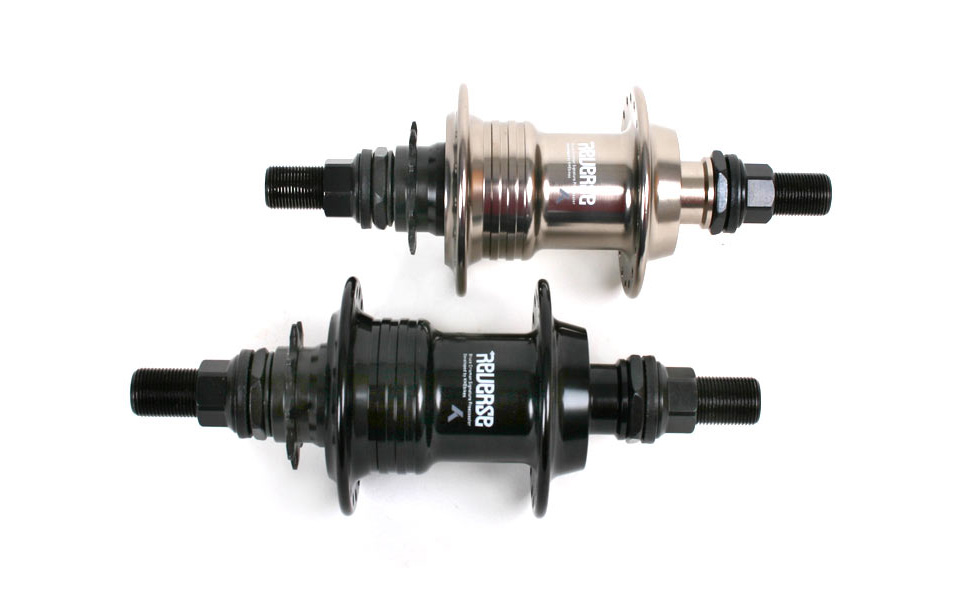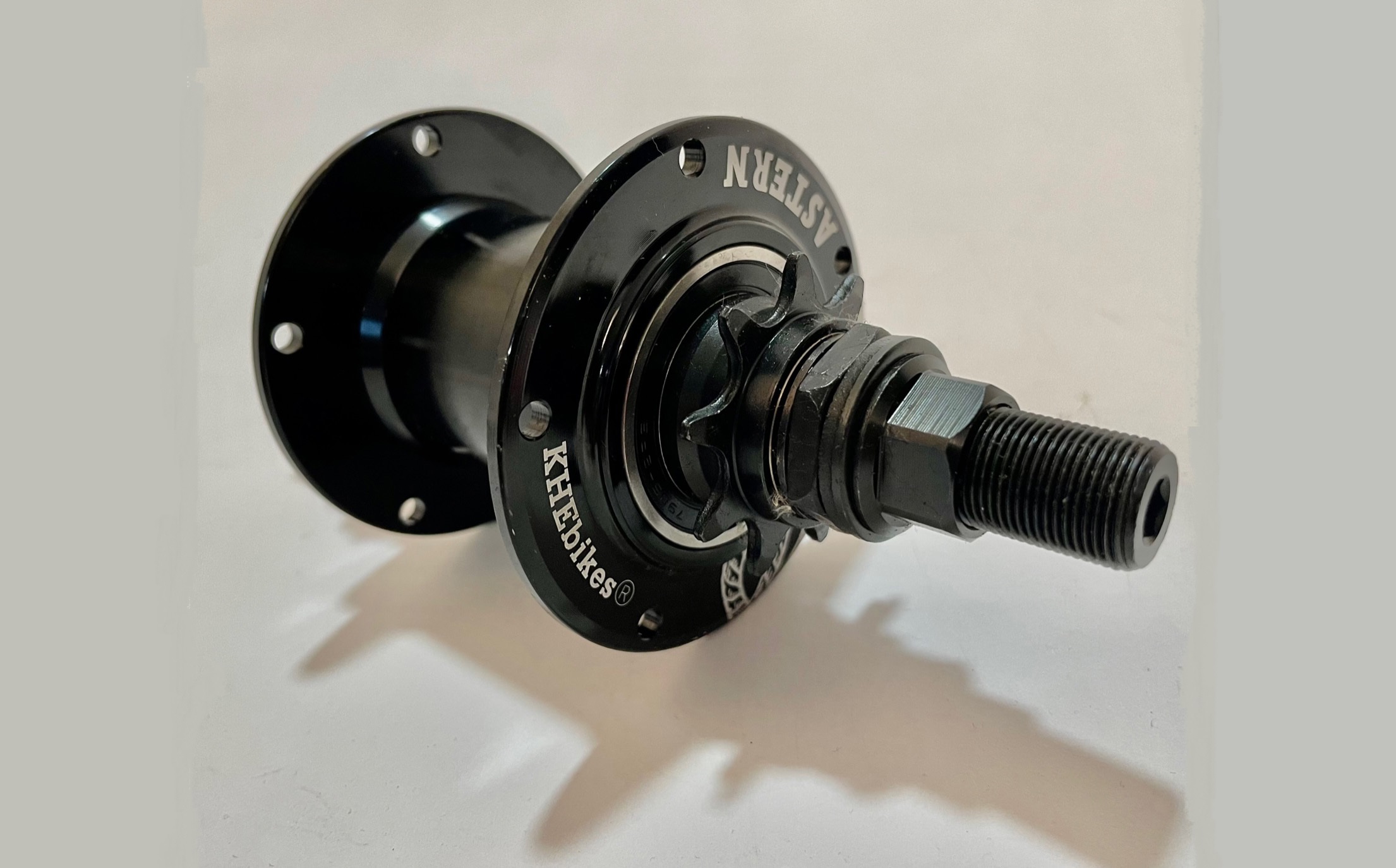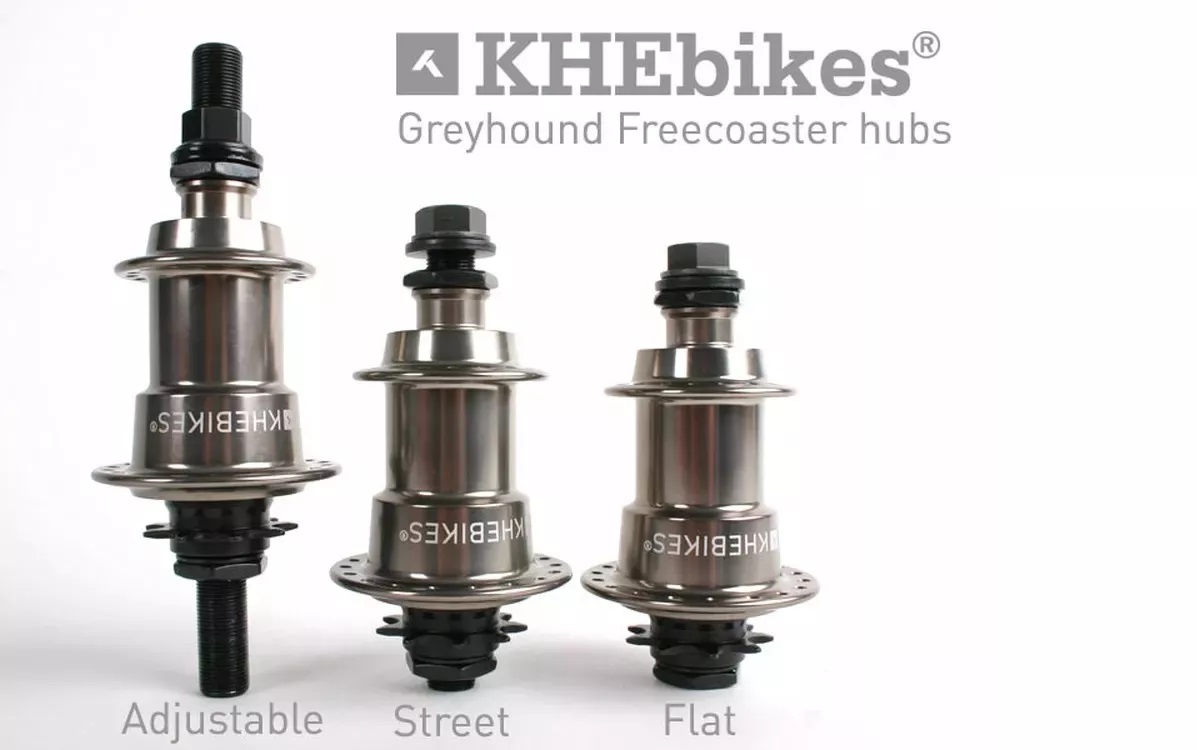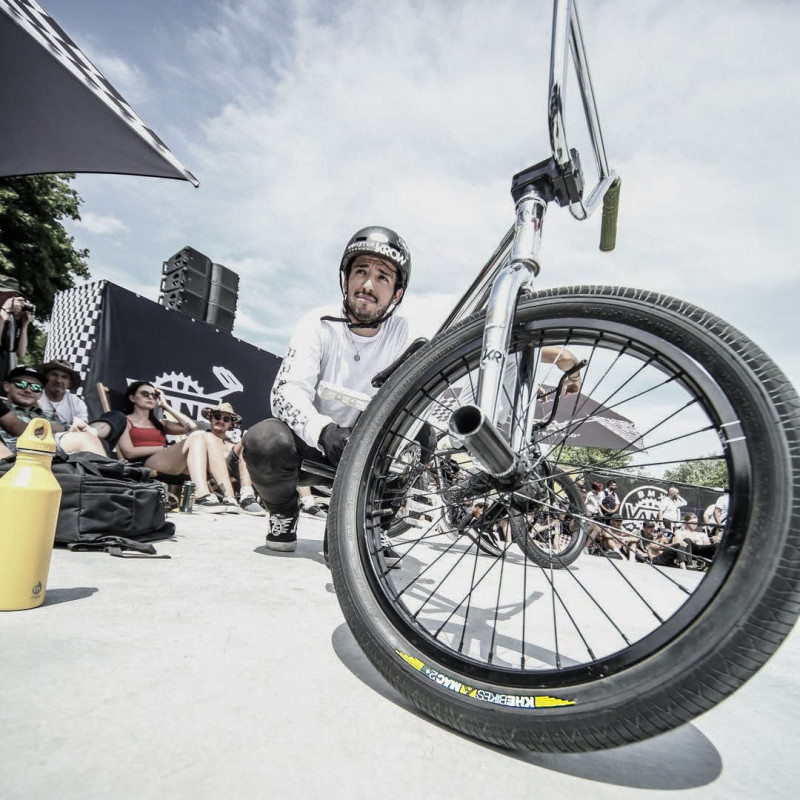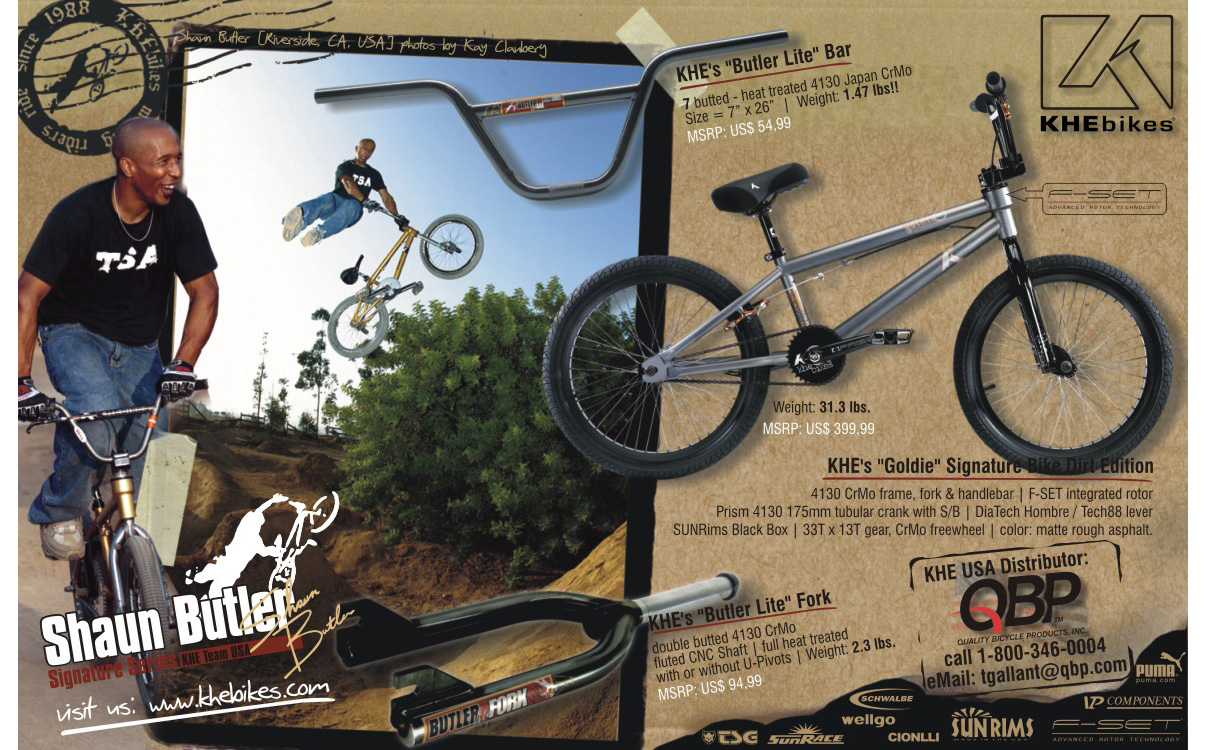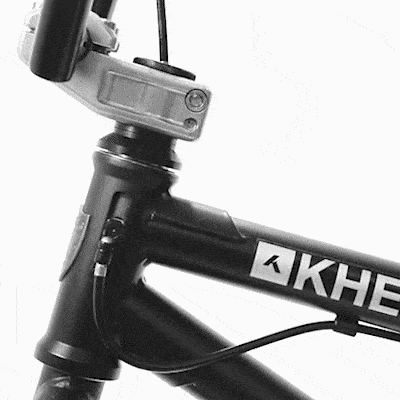Freecoaster hub
1992 - In this year, KHEbikes launched the first Freecoaster hub with industrial bearings (sealed bearings). After many years of development and testing by professional riders, the first Freecoaster hub was made available for the BMX market. A short time later, the first Freecoaster hub was also installed in a complete bike.
In this article you can find out what Freecoaster hubs are, where they come from and the history of KHE Freecoaster hubs.
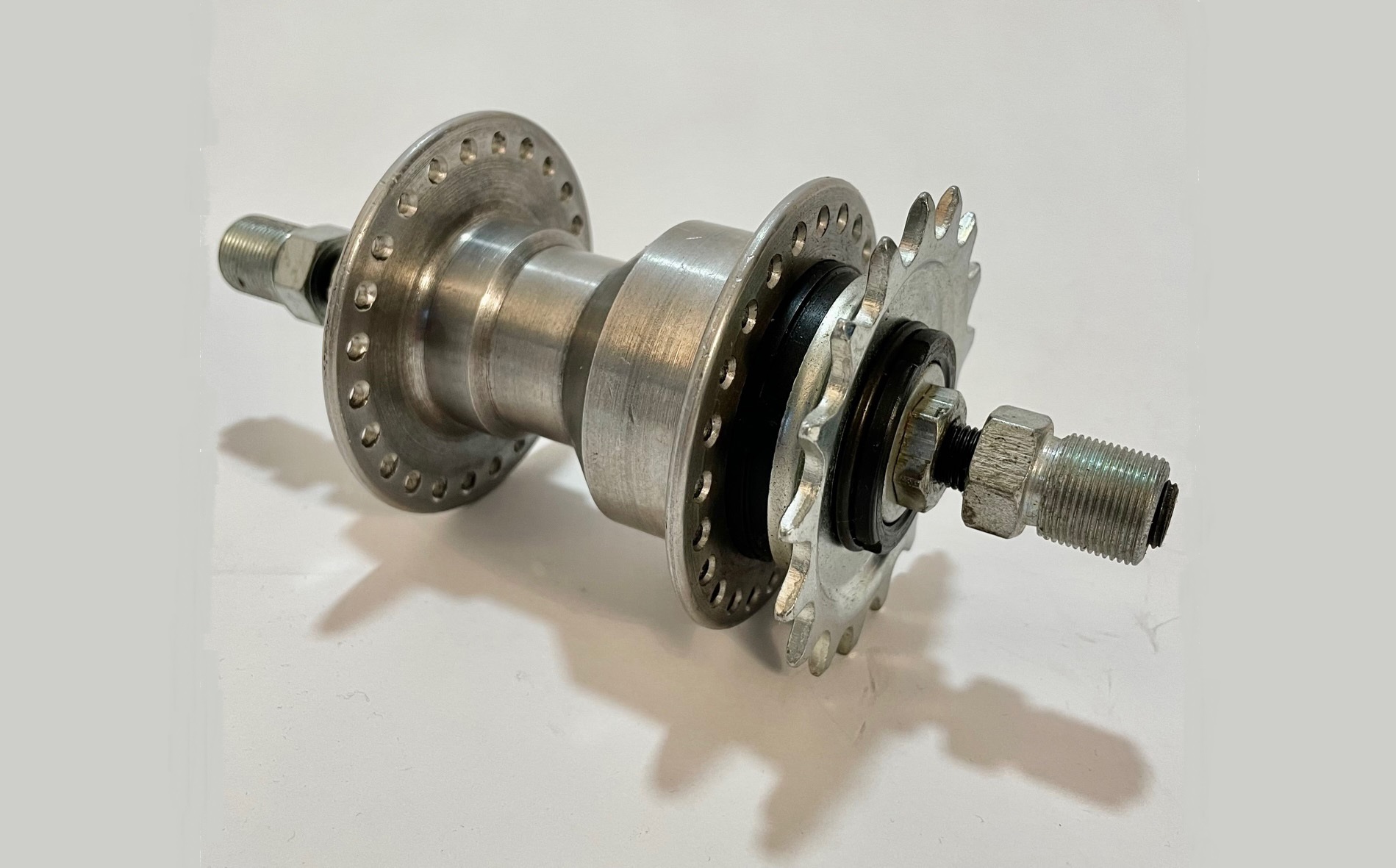
KHE "Rollvergnügen" freecoaster
The KHE Rollvergnügen came onto the market for the first time in 1992 and was one of the high-end products from KHE! The Freecoaster hub can be described as the first Freecoaster hub with industrial bearings, KHE is considered one of the pioneers of Freecoaster hubs.
Somewhat later, the KHE Rollvergnügen was also occasionally fitted with a 14mm axle, which also made it unique among the Freecoaster hubs. Maybe some of you still have the KHE Rollvergnügen 14mm with a red powder coating at home.
Shortly after the introduction of the KHE Rollvergnügen, the KHE "Roll-X" also came onto the market. This freecoaster hub was the first optimization of the first hub with industrial bearings.
Freecoaster hubs with adjustable play
KHE BRUCE CRISMAN "REVERSE" FREECOASTER
The KHE Bruce Crisman Reverse Freecoaster hub is a special freecoaster hub. It is named after the professional BMX rider Bruce Crisman, who was closely involved in the development and design of the hub.
Reverse freecoaster technology: The hub uses reverse freecoaster technology, which allows the rider to ride backwards without the cranks and pedals turning. This makes it easier to perform various tricks and movements that require riding backwards, such as fakie tricks.
Adjustability: Like many freecoaster hubs, the KHE Bruce Crisman Reverse Freecoaster hub offers adjustment options to customize the response and play of the freewheel to the rider's personal preferences. This allows the rider to optimize the hub for their individual needs.
KHE "ASTERN" FREECOASTER
The KHE Astern Freecoaster hub is another freecoaster hub from KHE. It came onto the market a few years after the Bruce Crisman "Reverse" Freecoaster hub.
The hub offers similar adjustment options to the Bruce Crisman Freecoaster, but with one major difference. With the KHE "Astern" Freecoaster hub you can adjust the adjustable play with an Allen key, whereas with the Bruce Crisman "Reverse" Freecoaster you had to dismantle the hub. This was a great advantage and further progress of the Freecoaster hubs.
BMX riders could simply take an Allen key to the skate park and adjust the play of their Freecoaster hub if necessary. Today, this is standard on Freecoaster hubs.
What is the difference between LHD and RHD hubs?
LHD and RHD stand for "Left Hand Drive" and "Right Hand Drive" and refer to the position of the freewheel in a rear hub in relation to the bicycle chain. Here are the main differences between LHD and RHD hubs:
- Position of the freewheel: In an LHD hub, the freewheel is located on the left side of the hub when looking at the bike from behind, while in an RHD hub it is located on the right side.
- Compatibility with chain drive: As the freewheel is located on different sides, the hub must be compatible with the bicycle chain and drive system accordingly. With an LHD hub, the chain is routed on the left-hand side of the frame, while with an RHD hub the chain runs on the right-hand side.
- Conversion effort: If a rider wants to convert their hub from LHD to RHD or vice versa, this usually requires the freewheel or other parts of the hub to be replaced. This can vary in complexity depending on the hub and manufacturer.
Overall, LHD and RHD hubs are mainly defined by the position of the freehub in relation to the bicycle chain and are selected according to the rider's individual needs and preferences.
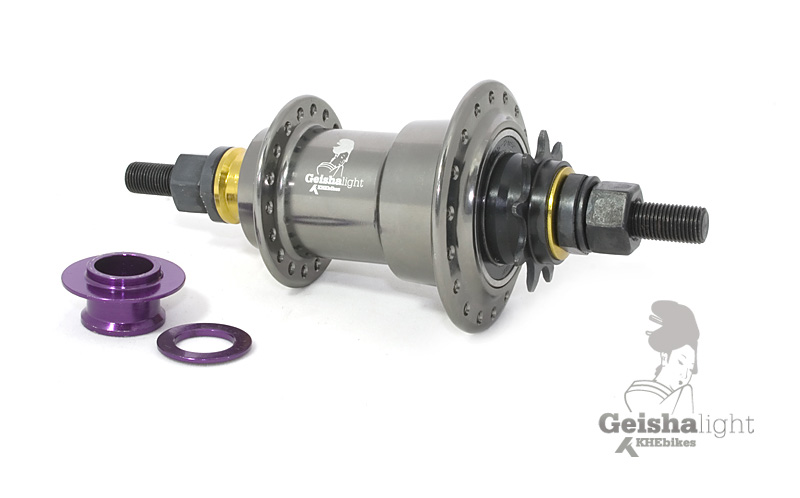
KHE "Geisha" freecoaster hub
The KHE "Geisha" freecoaster hub is one of the newer freecoaster models from KHE. It was initially produced in a golden color and then released a little later as the KHE "Geisha" Light in a grey color variant.
The KHE Geisha Freecoaster hub is a popular choice with BMX riders around the world. The KHE Geisha Freecoaster hub is equipped with the same Freecoaster technology as its predecessors.
The hub was also designed with weight optimization in mind to reduce the overall weight of the BMX bike without sacrificing strength and reliability. A lighter wheel can improve maneuverability and agility.
The latest KHE Freecoaster hub series the KHE "Greyhound" Freecoaster is shown in the picture below!
More innovations
Over the last 35 years, KHEbikes has been able to establish a large number of patents and innovations on the BMX market. Here is a selection of other exciting innovations.


